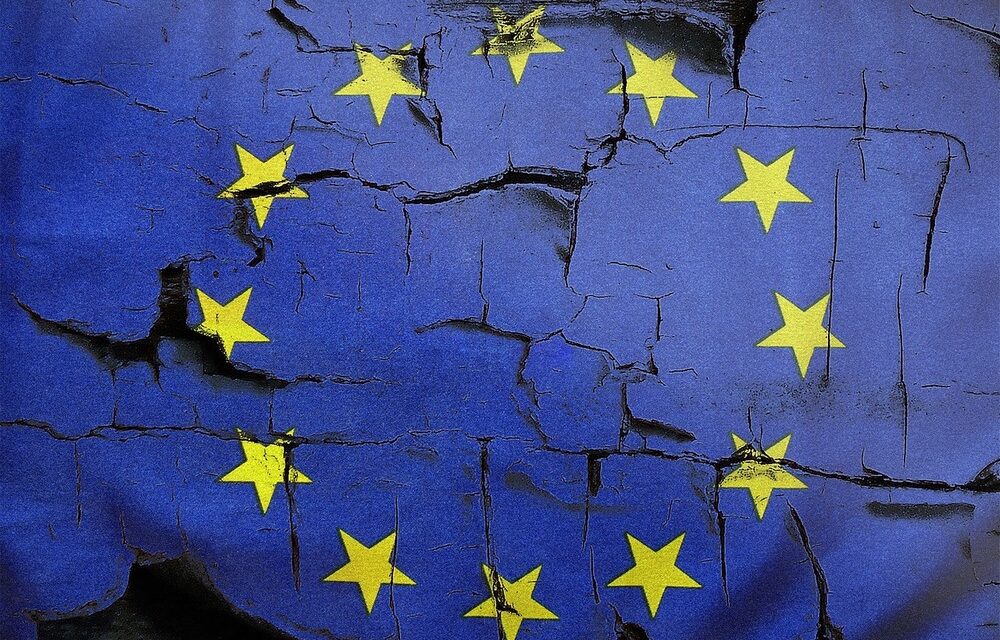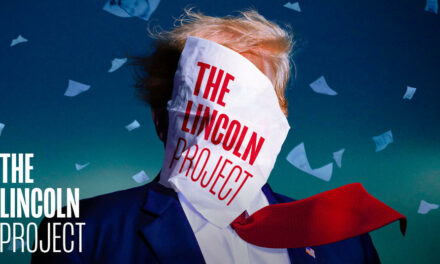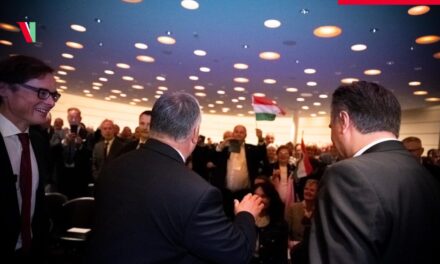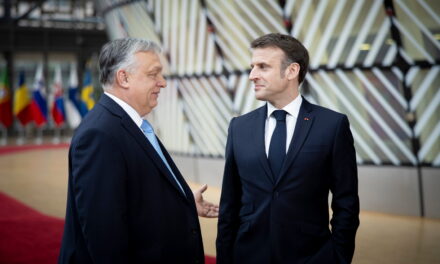The process that today shows spectacular signs of the global financial elite's ascendancy over nation-states began roughly in the 1970s. It is worth reviewing the processes of these decades, now half a century.
From the beginning of the 70s to the regime changes in Eastern and Central Europe at the end of the 80s, Western Europe was fundamentally transformed - and unfortunately, we regained our independence in a completely transformed, globalized period that wanted to destroy national sovereignty. In these two decades, the system based on the public good and the central role of the nation-state is gradually dismantled, and by consciously relegating the economic and other roles of the state to the background, they give priority to the globalizing market, and at the same time they dismantle all institutional and nation-state barriers; capital, goods and money are free, before moving over countries.
In this period - the 70s and 80s - the nation-state increasingly loses its control and regulatory function over globalizing market movements, and it itself comes under the control of the global market together with societies.
However, the Cold War is still in full swing, and global capital cannot avoid this aspect either: in order to prove the superiority of Western capitalism in the direction of international public opinion, and not least in the direction of socialist countries, the institutions that guarantee welfare gains and the social security of society are still it is not demolished during this period, and this even "provides space" for the state. However, the cultural transformation of society in the direction of cosmopolitan and neoliberal values begins already then, from the 1960s and 1970s - mainly along the lines of the cultural Marxist, on the other hand, neoliberal "values" of the '68 generation.
In order to protect the weakened dollar, American President Richard Nixon unilaterally announced in August 1971 the suspension of the convertibility of the dollar into gold (which, of course, later became permanent), and with this move he shook the foundations of the Keynesian market economy. The British and American financial circles increasingly blamed the state for the growing economic problems and the downturn. In close connection with this, the "salvation theory" promoting a market without borders appeared, neoliberalism, which was founded by authors such as Milton Friedman, Friedrich August von Hayek, Otto von Lambsdorff and others. After that, starting from the ideology of neoliberalism, from the 70s onwards, they gradually destroyed all state regulations, thanks to which the market and capital circulation between countries could still be controlled and controlled by national means.
Freely elected national governments gradually gave up their jobs and succumbed to the forces of the global market.
Without the capitulation of the nation-states, the total globalization of the market could not have taken place.
With this, the Keynesian market controlled by strong nation-states was replaced by the system of neoliberalism, characterized by a state and society controlled by a strong market. An important part of the process is the decision of the Bilderberg group in 1973 (in Saltsjöbaden, Sweden) that the price of oil will be artificially raised by forty percent, and with this the dollar's dominance of the money market and its character as a foreign exchange reserve were established. As a means of this, the Egyptian-Syrian-Israeli war broke out in October 1973, as a result of which the price of oil rose by seventy percent, and the first oil crisis broke out. From then on, oil could only be bought for dollars, so the dollar disconnected from the gold base "transferred" to the oil base, and the so-called petrodollar was created. The first oil crisis in 1973 was followed in 1979 by the second oil crisis, which was also not completely "spontaneous", which now completely pulled the ground from under the feet of Keynesian economic policy.
It is no coincidence that Margaret Thatcher in Great Britain from 1979 and Ronald Reagan in the United States from 1981 radically transformed the economic and social policies of their countries in the spirit of neoliberalism (which was called neoconservatism in the USA). This includes the change at the head of the Fed in 1979, when Paul Volcker was appointed president from the Chase Manhattan Bank, who, unlike his predecessors, was already an absolute believer in the free market and Friedman, and from then on, only a neoliberal specialist could be avoided. In 1981, Reagan appointed the totally neoliberal Donald Regan as his finance minister, and in the meantime, a comprehensive change of elites took place at the IMF and the World Bank, with dedicated supporters of neoliberalism everywhere taking up leading positions.
An important element of the transition from Keynesian state capitalism to neoliberal market capitalism is the creation of global economic and political institutions above nation-states. While the GATT (General Agreement on Tariffs and Trade) established in 1944 still supported Keynesian economic policy, its successor, the WTO (World Trade Organization), established in 1994, was 100% on the side of the global market. While trade tariffs were around 40 percent in 1947, between 2000 and 2006, the WTO completely reduced trade tariffs to zero, thereby opening a free way for market movements between Western countries.
Other institutions that strengthened the dominance of the global market were created in these decades: from 1954, the Bilderberg Group, followed by the World Economic Forum in Davos, founded in 1971 by the German economist Klaus Schwab, a Kissinger disciple (which organization is now one of the flagships of the to the global elite!), the Tripartite Commission established in 1973, the International Chamber of Commerce, the Round Table of Entrepreneurs, the ICC (International Chamber of Commerce), and the Council of Foreign Relations, established in the early 1920s (whose counterpart in London the Royal Institute for International Affairs), the European Council of Foreign Relations was established in 2007 on the initiative of György Soros, one of the latter's leading members - and the series could be continued.
However, what is striking and important: these global organizations are both economic and political, which reflects well the intention of the elite of the global market to create the global political domination of the market parallel to and in close connection with the global economic domination of the market. In other words, the market in this period, and especially in the next one starting from 1989-1991 - which continues to this day - gradually announces its demand to take the place of the nation-state, to replace it, as it were.
The global market therefore wants to create a paradigm shift by finally breaking up the trinity of state-market-society, which has been operating for many centuries, in order to replace it with the "market state", which also assumes the management of society.
In doing so, they create a system whose driving force is global technocracy based on private interests, or more precisely: elitocracy, and in which, at least according to their ideas, all social and political conflicts become manageable.
At the same time, it is also a fact that in the roughly twenty-year period discussed above - in the 70s and 80s - we could not yet speak of a global, only a globalizing market, since under the conditions of the bipolar world order only in the developed world, within the wider West the institutions and networks of the global market were created, the areas "covered" by the Soviet Union were only partially affected by these processes, although increasingly due to economic pressure. However, only after the dissolution of the Soviet Union and the communist camp, as well as the political transformation of former socialist countries, and the introduction of capitalism based on private property, can we talk about the extent of globalization affecting developed and developing countries. Before 1990, global institutions only appeared in the West.
However, after the regime changes in Central and Eastern Europe in 1989-1991, the leadership of the United States and the global financial elite behind it believed that the time had come for a unipolar world order governed by the USA and defined by the principle of liberal democracy. In the spirit of this, the neoliberal Francis Fukuyama wrote in 1989 (somewhat hastily) about "the end of history", about the world becoming unified. In this era, the global market matured, and from that time on, the financial and economic elite - not only in the West, but now in the expanded geopolitical space - targeted society and the state and absorbed them.
Thirty-three years have passed since then, and during the Russian-Ukrainian war, the question has now become completely open as to which direction the processes will move in the coming years in the comprehensive conflict of globalism versus nation-state sovereignty.
Source: Hungarian Nation
Photo: Pixabay












